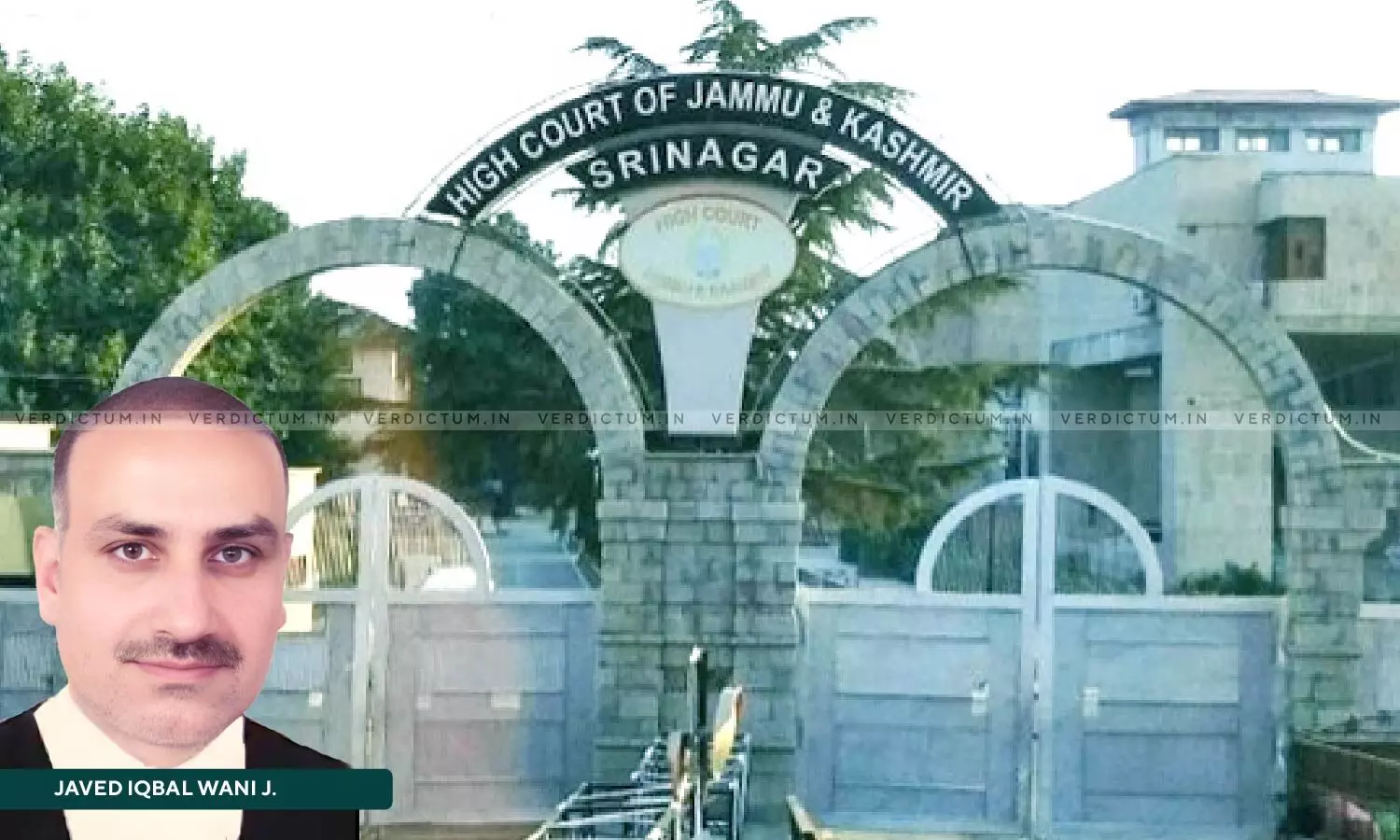
Justice Javed Iqbal Wani. Jammu and Kashmir & Ladakh High Court
J&K&L High Court Refuses To Quash FIR Against Man For Instant Triple Talaq Via Text Message
 |
|The FIR was registered against a man accused of pronouncing instant triple talaq on his wife through a text message.
The Jammu & Kashmir and Ladakh High Court has refused to quash an FIR filed against a man accused of pronouncing instant triple talaq on his wife through a text message.
The FIR under the Muslim Women (Protection of Rights on Marriage) Act, 2019, was registered against a man accused of pronouncing instant triple talaq on his wife through a text message.
A Bench of Justice Javed Iqbal Wani held, “…the pronouncement of Talaq, be it Talaq-e-biddat or any other similar form of talaq having the effect of instantaneous and irrevocable divorce pronounced by a husband upon his wife, by words either spoken or written or any electronic form or in any other manner whatsoever shall be void and illegal, and punishable by for imprisonment for a term which may extend to three years as also fine.”
Advocate Altaf Khan appeared for the petitioner, while Government Advocate Faheem Shah appeared for the respondents.
The case stemmed from an FIR registered in 2022 at the Kupwara police station, where the petitioner had sought relief under the High Court's inherent powers as conferred by Section 482 of the Criminal Procedure Code (CrPC), now corresponding to Section 528 of the Bharatiya Nagarik Suraksha Sanhita (BNSS).
In his plea, the petitioner argued that he had followed due process in accordance with Islamic law by executing Talaq-e-Ahsan through a formal Talaq Nama, thereby lawfully dissolving the marriage in line with Sharia and the Quran. He maintained that the FIR was both vague and baseless, and contended that no offence had been made out under either the Indian Penal Code or the 2019 Act.
The respondent countered these claims by alleging that the petitioner was involved in an extramarital relationship and had unilaterally pronounced triple talaq via text messages. These messages were supported by screenshots submitted during the investigation, which were treated as incriminating evidence under the Muslim Women (Protection of Rights on Marriage) Act, 2019.
During the proceedings, the Court examined Sections 2(c), 3, and 4 of the 2019 legislation. Section 3 of the Act declares any form of instantaneous and irrevocable divorce — whether spoken, written, or electronic — to be void and illegal. Section 4 provides the penal consequences for such acts, including up to three years of imprisonment and a monetary fine.
The Court noted that, in view of the evidence placed on record particularly the screenshots of the text messages allegedly containing the triple talaq the petitioner’s reliance on the Talaq Nama was insufficient to negate the validity of the FIR at the initial stage of criminal proceedings.
The Court also cited the Supreme Court's decision in Priti Saraf & Anr. v. State of NCT of Delhi (2021), which laid down the principle that the Court's inherent powers cannot be used to prematurely terminate criminal prosecutions before a proper trial, especially when a prima facie case appears to exist.
Accordingly, the High Court dismissed the petition, clarifying that the observations made were confined to the adjudication of the quashing petition and should not be construed as expressing any opinion on the merits of the criminal case or the petitioner's culpability.
Cause Title: Shabir Ahmad Malik v. Union Territory of J&K & Anr.
Appearance:
Petitioner: Advocate Altaf Khan
Respondent: Advocates Faheem Shah and Sheikh Manzoor.